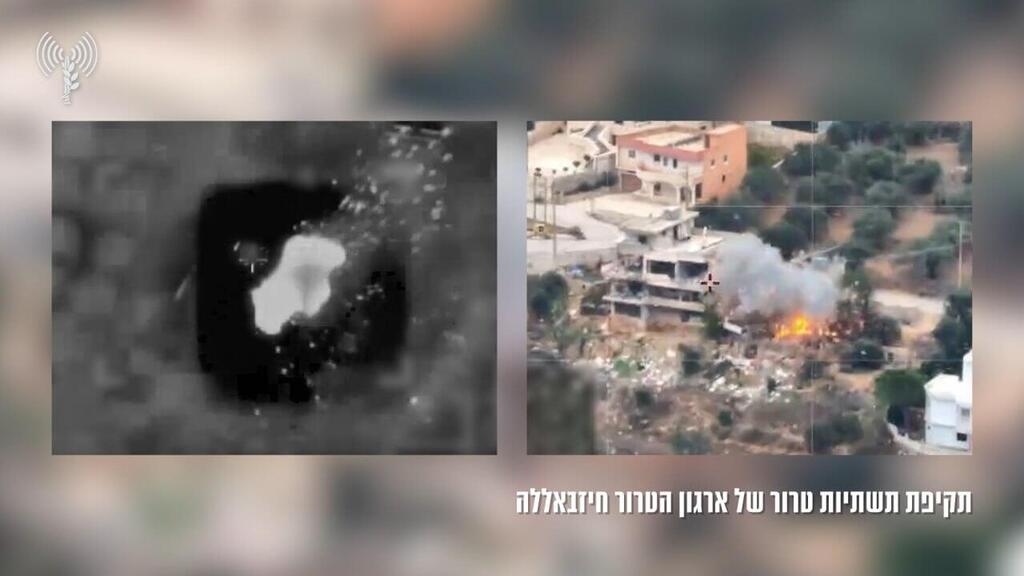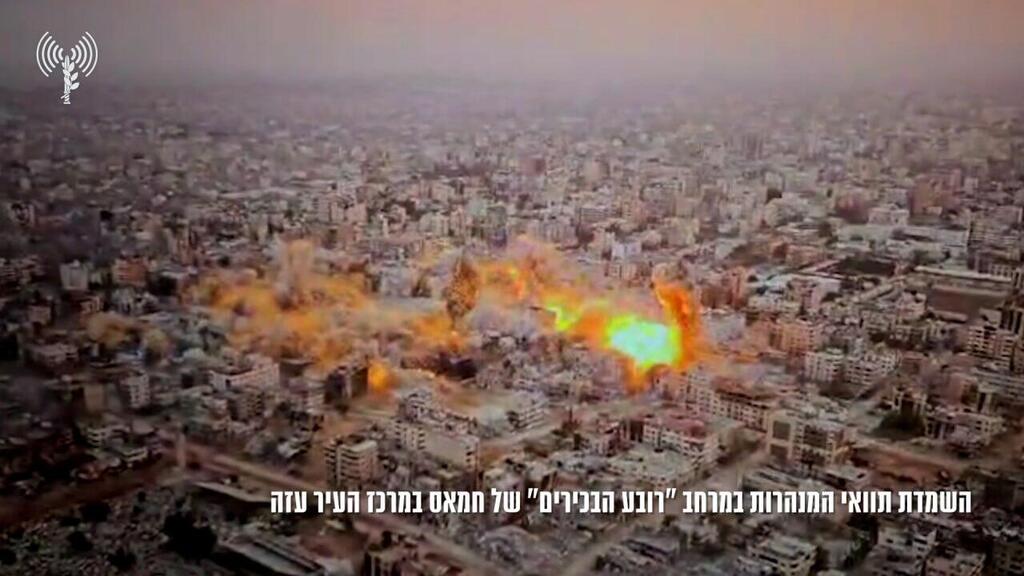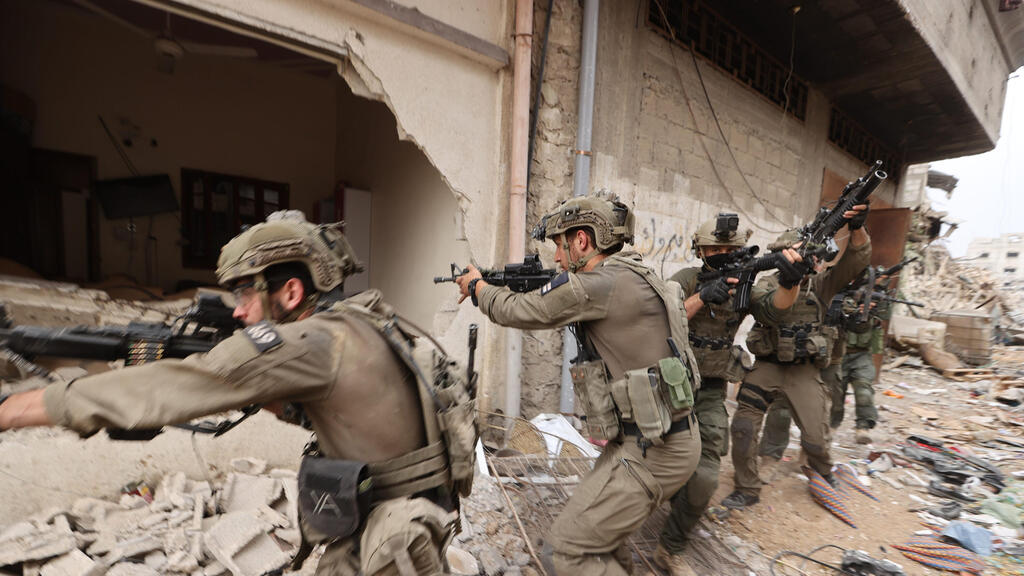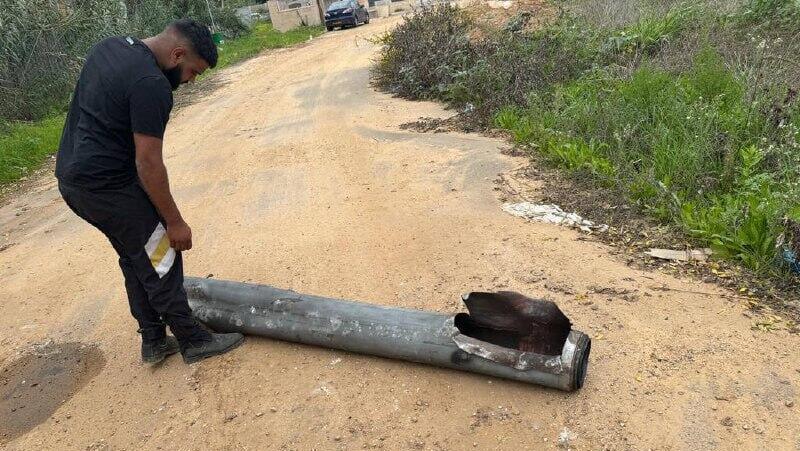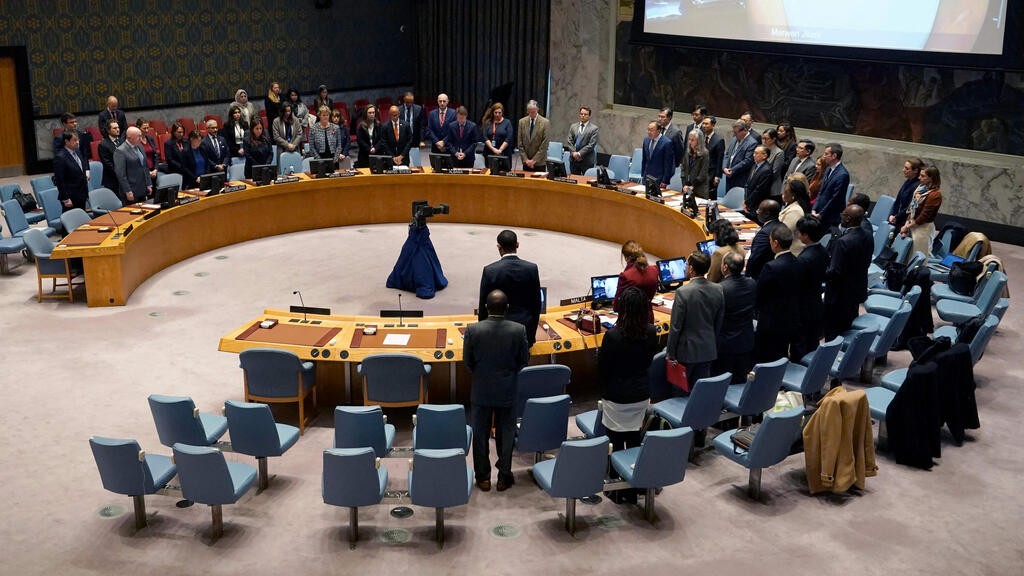Getting your Trinity Audio player ready...
IDF strikes Hezbollah targets in S. Lebanon
(IDF)
Israel was increasing the scope of its strikes against Hezbollah targets in Lebanon, the UK based Asharq Al-Awsat news paper reported on Thursday evening.
More stories:
According to the report, Israel attacked targets in a distant of 32 kilometers (20 miles) north of the Lebanon-Israel border for the first time since the war began and was firing at any vehicle traveling near the border in an area it seeks to see secure and free of Hezbollah forces.
A total of more than 20 countries have agreed to participate in the new U.S.-led coalition safeguarding commercial traffic in the Red Sea from attacks by Yemen's Houthi movement as more nations join the effort, the Pentagon said on Thursday.
Still, the new Pentagon total would suggest that at least eight of the countries who have signed up have also declined to be publicly named, in a sign of political sensitivities of the operation as regional tensions soar over the Israel-Hamas war.
The IDF said it completed demolition of the central tunnel system used by Hamas commanders in Gaza City. the tunnels connected to the homes and officers of senior leaders and commanders of the terror group and included underground offices and facilities including their military command HQ.
IDF blows up Hamas tunnel system in Gaza City
(צילום: דובר צה"ל)
It ran from the excusive Rimal neighborhood where many of the leaders of Hamas resided toward the center of Gaza City to be used when they felt unsafe over-ground amid Israeli attacks.
Inside the underground facility, forces found proof that Hamas’ military wing commander Mohammed Deif stayed inside the command center for a time after locating an elevator shaft leading to his office, alongside a wheelchair likely to have been used by him after injuries from IDF attempts to kill him.
“Tunnel shafts leading to the network of tunnels are located in the residences and offices of senior officials and allow for a covert descent through designated elevators and stairs. This enabled Hamas operatives to both escape and remain in hideouts for extended periods. The underground tunnel network includes blast doors and hideouts. In some cases, food products, water and electrical infrastructure were found that allowed for prolonged stays,” the IDF said in a statement on Wednesday.
A senior official said in a briefing to the foreign press on Thursday that there was currently no negotiations towards a deal to release hostages held by Hamas in Gaza and Israel insists on the release first of all of 17 women and children who are among the remaining 92 hostages, before any further discussion can take place.
The IDF said on Thursday that its forces increased their stronghold on Shejaiyah in Gaza City after weeks of fighting, and eliminate the Hamas command of its forces there.
According to the military, the troops encountered terrorists at close quarters and killed them, found tunnel leading from shafts inside homes, schools and medical clinics as well as weapons and guidebooks.
According to the military, the troops encountered terrorists at close quarters and killed them, found tunnel leading from shafts inside homes, schools and medical clinics as well as weapons and guidebooks.
Earlier, dozens of rockets were fired from Gaza toward southern and central Israel on Thursday afternoon, sending millions of Israelis running for safe areas. The rockets were fired at major population centers in Israel including Ashkelon and Ashdod in the south, and Tel Aviv, Bnei Brak, Ramat Gan, Petah Tikva, Rishon Lezion, Herzliya, Hod Hasharon, Ramat Hasharon, Ra'anana and Kfar Saba in the center. Rocket fragments fell in several of the cities, but no major damage was reported.
11 View gallery
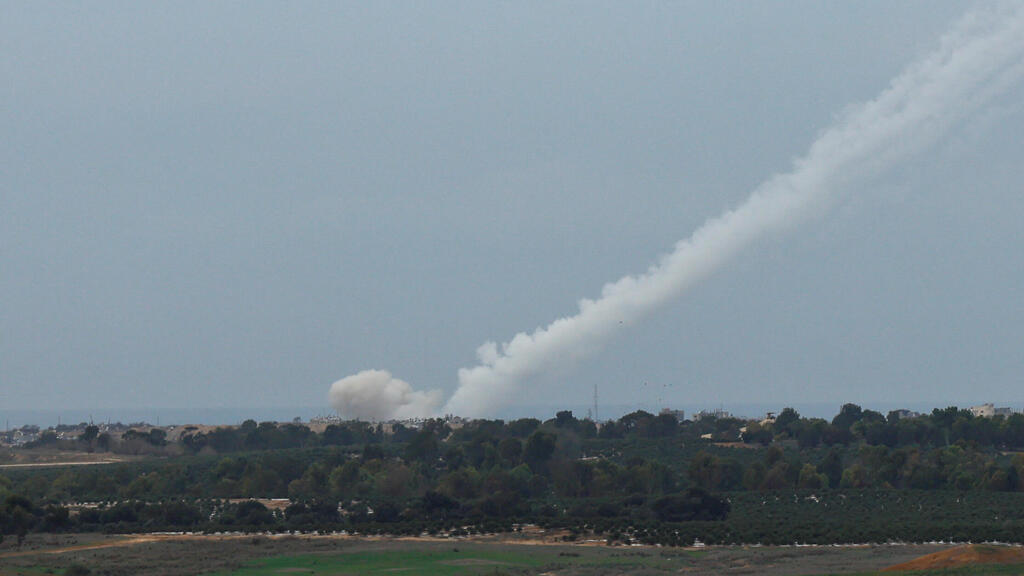

Rockets launched from Gaza to central Israel on Thursday
(Photo: Clodagh Kilcoyne / Reuters)
Shrapnel from a rocket in the afternoon barrage fell on a school in Tel Aviv. The school said that all the children made it on time to protected areas and were not injured
Palestinian factions reject any talks about prisoner swaps until after Israeli "aggression" is ended, a statement published by Hamas on Thursday said. "There is a Palestinian national decision that there should be no talk about prisoners or exchange deals except after a full cessation of aggression," the statement said. In addition to Hamas, Islamic Jihad, a smaller Palestinian terrorist group, is also holding hostages in Gaza.
Two anti-tank missiles were fired from Lebanon toward the northern Israeli border community of Avivim late Thursday morning, one of them hitting a parked car, causing extensive property damage. There were no immediate reports of casualties.
Shortly after, sirens blared in the northern border communities of Dafna, Hagoshrim, Ghajar, Kibbutz Dan, She'ar Yashuv and Snir due to a suspected hostile aircraft infiltration.
At the same time, rocket warning sirens sounded four times on Thursday morning in communities located near the Gaza border, after a day of quiet.
11 View gallery
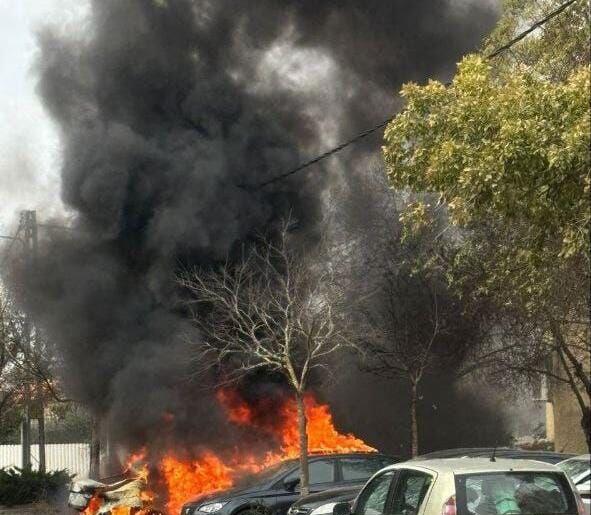

Two anti-tank missiles were fired from Lebanon toward the northern Israeli border community of Avivim, hitting a parked car
Dozens of protesters gathered near the Kerem Shalom border crossing on Thursday morning to demonstrate against Israel allowing the entry of humanitarian aid to the Gaza Strip during the war. The protesters, some of whom are parents of soldiers fighting in Gaza, were stopped by the IDF before reaching the border crossing. The demonstration moved to nearby communities.
Egyptian officials discussed the negotiations between Israel and Hamas regarding the release of hostages and a cease-fire in the Gaza Strip in an interview with the Hezbollah-affiliated Al-Akhbar newspaper. According to the sources, the principle under which one Israeli hostage will be released in exchange for 10 Palestinian prisoners is still on the table. The sources added that Israel wants to see Hamas' demands - including the names of the prisoners the organization wants to be released as part of the deal - before giving final approval to the move.
11 View gallery
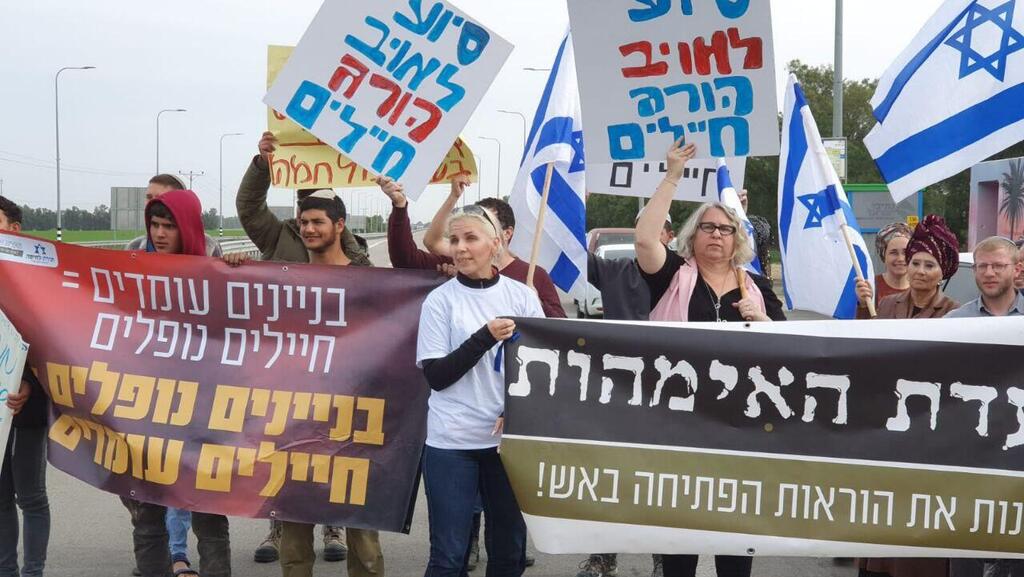

Israeli protesters at Kerem Shalom crossing against providing aid to Gaza during war
At the same time, senior Hamas officials acknowledged Thursday morning that Israel presented a proposal for the release of hostages and an end to the fighting in the Gaza Strip, in the wake of a similar report the previous evening in the Wall Street Journal. The chiefs added that the proposal revolves around a seven-day cease-fire, and noted that the Palestinian factions in the Gaza Strip, led by Hamas, said in response to the proposal that "the time for a temporary truce is over."
11 View gallery
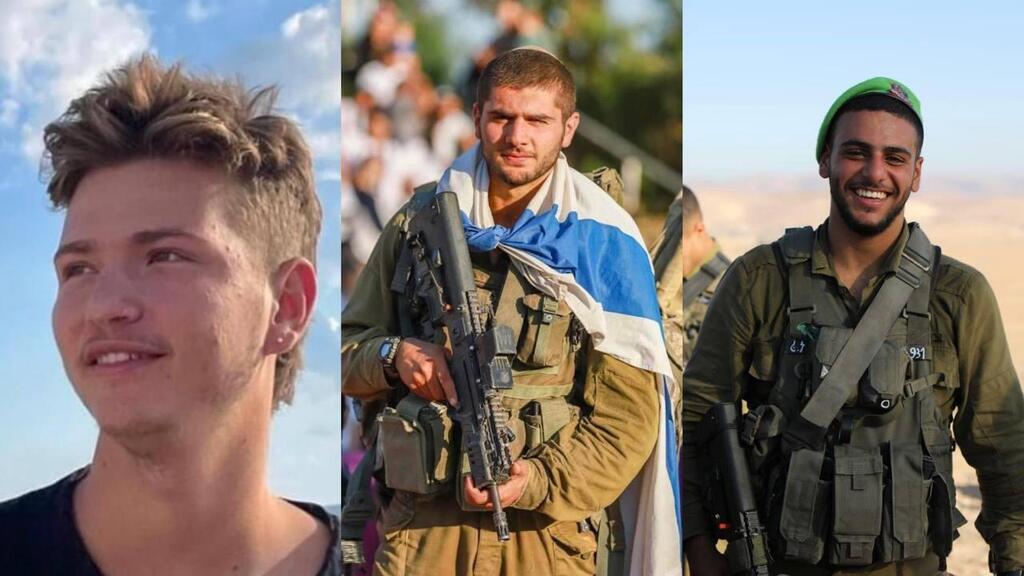

Sgt. Lavi Ghasi, 19; Lt. Yaacov Elian, 20; and Lt. Omri Shwartz, 21 were killed in battles in northern Gaza
Three more IDF soldiers have fallen in battles in the Gaza Strip, the IDF announced early Thursday morning. They are: Sgt. Lavi Ghasi, 19, from Hashmonaim, an infantryman in the Nahal Brigade’s 931st Battalion; Lt. Yaacov Elian, 20, from Ramat Gan, a cadet in the Bahad 1 officers school’s Gefen Battalion who previously served as a Givati squad commander; Lt. Omri Shwartz, 21, from Shadmot Dvora, a cadet in the Gefen Battalion who was previously a soldier in the Paratrooper Brigade’s Reconnaissance Battalion. Eight other soldiers were seriously injured in the same battles.
Rockets fall on Kiryat Shemona
Eight rockets were launched overnight from Lebanon toward the northern city of Kiryat Shemona and rockets struck sites in the city, causing damage. Gas cylinders located next to a building in Kiryat Shemona were hit by one of the rockets, damaging the building and a nearby vehicle. The municipality later reported that a rocket fell near homes and cars in a Kiryat Shmona neighborhood, causing shrapnel damage. No injuries were reported.
On Thursday morning, Israeli Air Force fighter jets attacked Hezbollah terrorist infrastructure near the Lebanese village of Kila in Lebanon, which is opposite Metula. The attack comes hours after the IDF said late on Wednesday night that air force jets attacked the operational headquarters of Hezbollah in Lebanese territory.
Also on Wednesday evening forces identified a number of terrorists who approached the perimeter fence from Lebanon along the border with Metula. The forces fired at them and "hits were detected."
11 View gallery
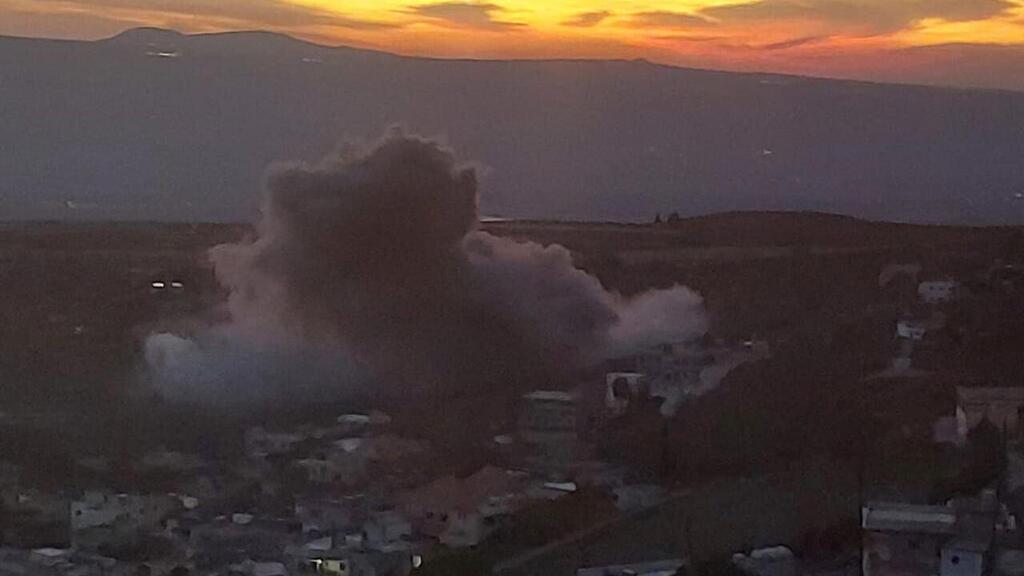

Israeli airstrikes on Hezbollah terrorist infrastructure near the Lebanese village of Kila in Lebanon
11 View gallery
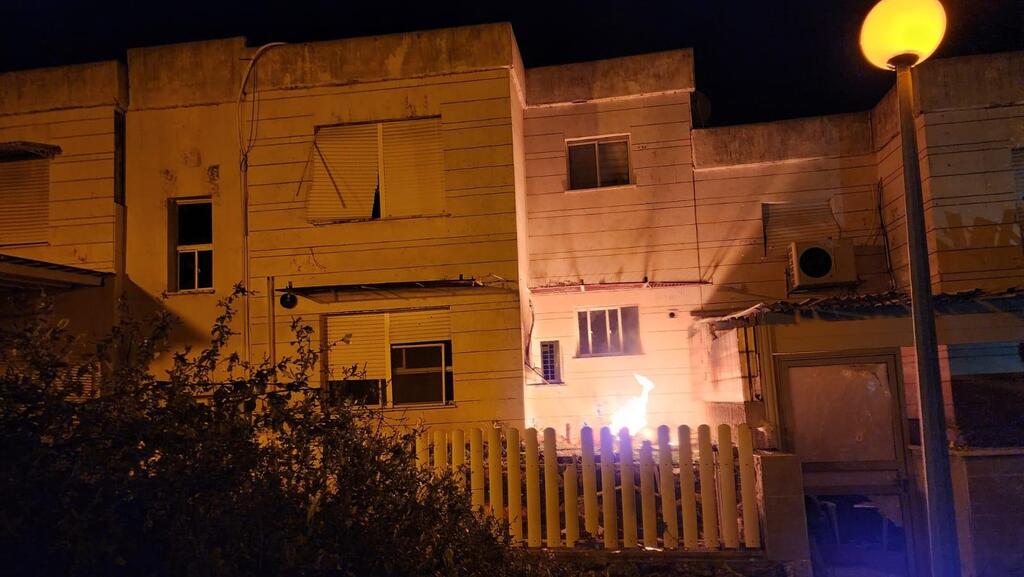

A rocket damages a home in Kiryat Shemona
(Photo: SPokesman, Kiryat Shemona municipality)
Following rocket warning sirens in the Golan, the IDF announced that four rocket launches from Syrian territory were identified that crossed into Israeli territory. IDF forces attacked the sources of the rockets as well as a military position of the Syrian army."
U.S. Secretary of State Antony Blinken late on Wednesday night appealed to the countries of the world that are not demanding that Hamas lay down its weapons, saying during a press briefing that "many countries are calling for an end to this conflict, which we all want, but I don't hear most of them demanding that Hamas stop hiding behind civilians and lay down its weapons." According to him, "If Hamas does this - the war will end tomorrow. It could have ended already a month ago if Hamas did this. How can it be that there are no demands of the attacker, but only demands of the victim."
His remarks came after the Wall Street Journal reported on Wednesday night that Hamas rejected an Israeli offer to stop fighting in the Gaza Strip for a week in exchange for the release of 40 hostages. According to the report, which is based on Egyptian sources, the terrorist organization stated that it will not discuss the release of Israeli hostages until the cease-fire comes into effect.
Meanwhile, a United Nations Security Council vote on a bid to boost aid to the Gaza Strip and ask the U.N. to monitor humanitarian aid deliveries in the Palestinian enclave was delayed at the request of the U.S., diplomats said on Wednesday. "Negotiations are ongoing and need more time. A rushed vote does not seem like it will end well," a U.N. diplomat familiar with negotiations told Reuters, referring to a possible U.S. veto of the draft resolution.
The text - drafted by the United Arab Emirates - essentially aims to dilute Israel's control over all humanitarian aid deliveries to 2.3 million people in Gaza. Washington traditionally shields its ally Israel from U.N. action. The vote could come on Thursday.
First published: 07:55, 12.21.23






